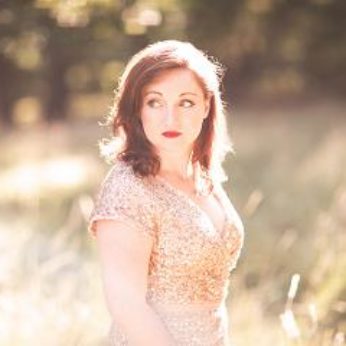Composer: Aaron Copland (b. 1900 - d. 1990)
Performance date: 04/07/2014
Venue: St. Brendan’s Church
Composition Year: 1949-50
Duration: 00:29:29
Recording Engineer: Richard McCullough, RTE
Instrumentation: S-solo, pf
Instrumentation Category:Duo
Artists:
Ailish Tynan -
[soprano]
Joseph Middleton -
[piano]

The Emily Dickinson story
is an extraordinary one. She spent almost all her life in the Massachusetts
town of Amherst, where she was born in 1830, in a Puritan community based on
church-going and revivalism. She wrote 1,775 poems – less than 20 were
published in her lifetime. Those she did publish were so mangled by
uncomprehending editors that she quickly withdrew from the auction of
publication and a complete and accurate edition of her poems did not appear
until 1955. Her poetry is startlingly modern with her highly condensed
expression and idiosyncratic punctuation that leap off the page. Every word,
every punctuation mark, even every word left out counts in her poems.
Dickinson tears at the
comforting blanket of language and exposes us to her stark, distinct and
jewel-like world. In an age of oratory, she chose the near-silence of her terse
poetic script. In a literary culture dominated by men, she sought out her
literary sisters – Elizabeth Barrett Browning, the Brontës, George Eliot,
George Sand. In a Puritan culture, she was a religious sceptic and wrote
movingly about being shut out of a lost Heaven. She lived the restricted life
expected of a woman of good family in a New England town, she wrote about the
great Romantic themes of love, loss, death, Nature and God but her poetry looks
at every experience, every object, every emotion as if it were wholly new. She
was a hundred years ahead of her time.
The conductor Michael
Tilson Thomas wrote: I actually learnt to
love Emily Dickinson , my whole entry into her world of poetry was through
Aaron’s songs. I think he made, for a whole generation of Americans, the
cadential intent of the actual words very clear in the way he set them. And
the soprano Phyllis Curtin, who sang them hundreds of times, said: It was Aaron who found the musical voice for
Emily Dickinson, and the times when I sang best, I had the feeling she was
speaking. Given that Copland seemed born to set Dickinson, it is doubly
unfortunate that he did not work from her original texts and their remarkable
punctuation. The corrupt editions that he used smoothed over her jagged delivery
and conventionalised her devastatingly abrupt style.
The poems Copland selected
concern life and death, nature as both a benign and destructive and the poet’s
struggle between faith and despair. He began the project with The Chariot, where Dickinson picks up
the Romantic theme of Death and the
Maiden and gives the Maiden a voice, an uncanny meeting of wit and terror: Because I could not stop for Death – / He
kindly stopped for me – /The Carriage held but just Ourselves – / And Immortality.
What composer would not want to set those lines?
Copyright © 2024 West Cork Music. All rights reserved.
Designed and developed by Matrix Internet